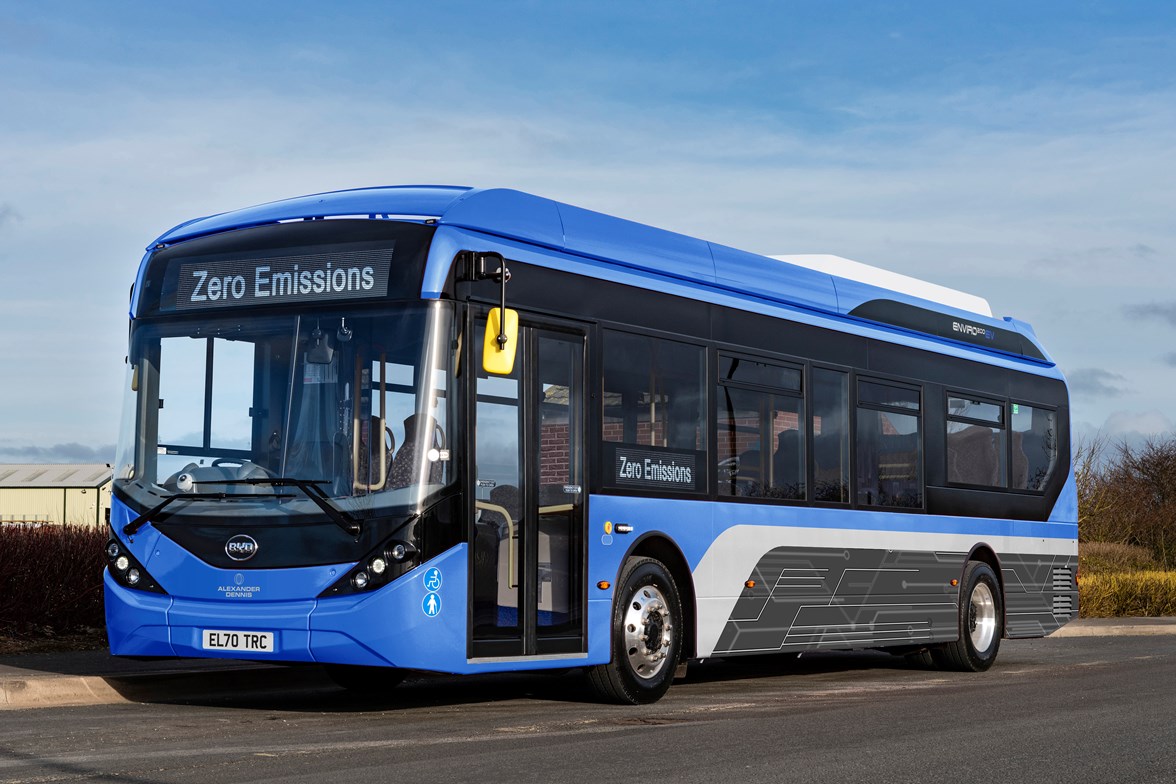Over £40 million for zero emission buses

The Scottish Government has awarded £40.5 million through a second round of the Scottish Ultra-Low Emission Bus Scheme (SULEBS).
This is the largest investment yet through the SULEBS programme, and will support operators in replacing 215 old diesel buses with new battery-electric models. This is a substantial increase on the 57 buses supported through the first round and to help meet demand, the intended budget for this second round has been increased by £15 million.
With 172 of the buses to be built in Falkirk, this investment supports skilled, green manufacturing jobs in Scotland, as well as reducing transport emissions.
The Scottish Government has also published a new information and ideas pack which shows how the bus and finance sectors are innovating to speed up the transition to net-zero. This is the first report from The Bus Decarbonisation Taskforce, which brings together senior leaders from the energy, bus and finance sectors to co-design a pathway to a fully decarbonised bus fleet. The information pack identifies new routes for financing green buses that can build on government support and bring about faster fleet transformation.
Cabinet Secretary for Transport, Infrastructure and Connectivity Michael Matheson said:
“The Scottish Ultra-Low Emission Bus Scheme continues to help drive a green recovery, responding to the global climate emergency and improving air quality.
“Ensuring a just and fair transition to a net-zero economy is a truly national endeavour and I’m delighted that the Scottish Government’s investment is matched by private investment from bus operators and the finance sector. 172 of these new buses will be manufactured in Falkirk – benefitting the Scottish bus industry and wider supply chain.
“More journeys are made by bus compared to any other public transport mode and a vibrant bus industry can provide the solutions to complex challenges in our society. By helping operators to invest in a greener fleet we can support our green recovery – and keep more people moving with fewer carbon emissions and better air quality as a result.
“Our bus decarbonisation work, both through SULEBS and the Taskforce, is part of a wider package of support for our bus industry – including long-term funding of over £500 million for bus priority infrastructure. We’re also providing support of up to £191.3 to help maintain essential services during the COVID-19 pandemic and help keep Scotland moving.”
Paul Davies, Alexander Dennis President & Managing Director said: “The Scottish Government deserves huge credit for leading by example to support bus operator’s commitment to invest in cleaner, greener buses and we are delighted that bids for 172 of our electric buses have been successful.
“These zero emission buses will be built at our factory in Falkirk and therefore ensure this Scottish Government investment is made domestically, allowing the benefits to be felt across our communities whilst helping to underpin skilled jobs. We very much look forward to working with the successful operators to finalise terms and get these vehicles into service at pace.”
Paul White, Director at CPT Scotland said: “This announcement highlights the commitment of Scotland’s bus sector to decarbonisation. The £40.5m awarded by Government will be met with investment of over £80m from bus companies to fund these 215 vehicles.
“CPT will continue to work with Scottish Government to create an operating environment that prioritises sustainable and active travel, frees buses from congestion and maximises the benefits of this investment.”
Dave Moxham – Deputy General Secretary for the STUC and member of the Just Transition Commission said: “I am delighted to see that all of the ADL buses will be manufactured in Falkirk. This is positive news for the workers who through their union have been working hard to achieve this.
“There is no doubt that we need to build on our existing domestic manufacture if we are to ensure that Scotland can be at the forefront of a net-zero industrial revolution.
“This announcement is an example of the kind of interventions we need if we are to embark on a real green recovery.”